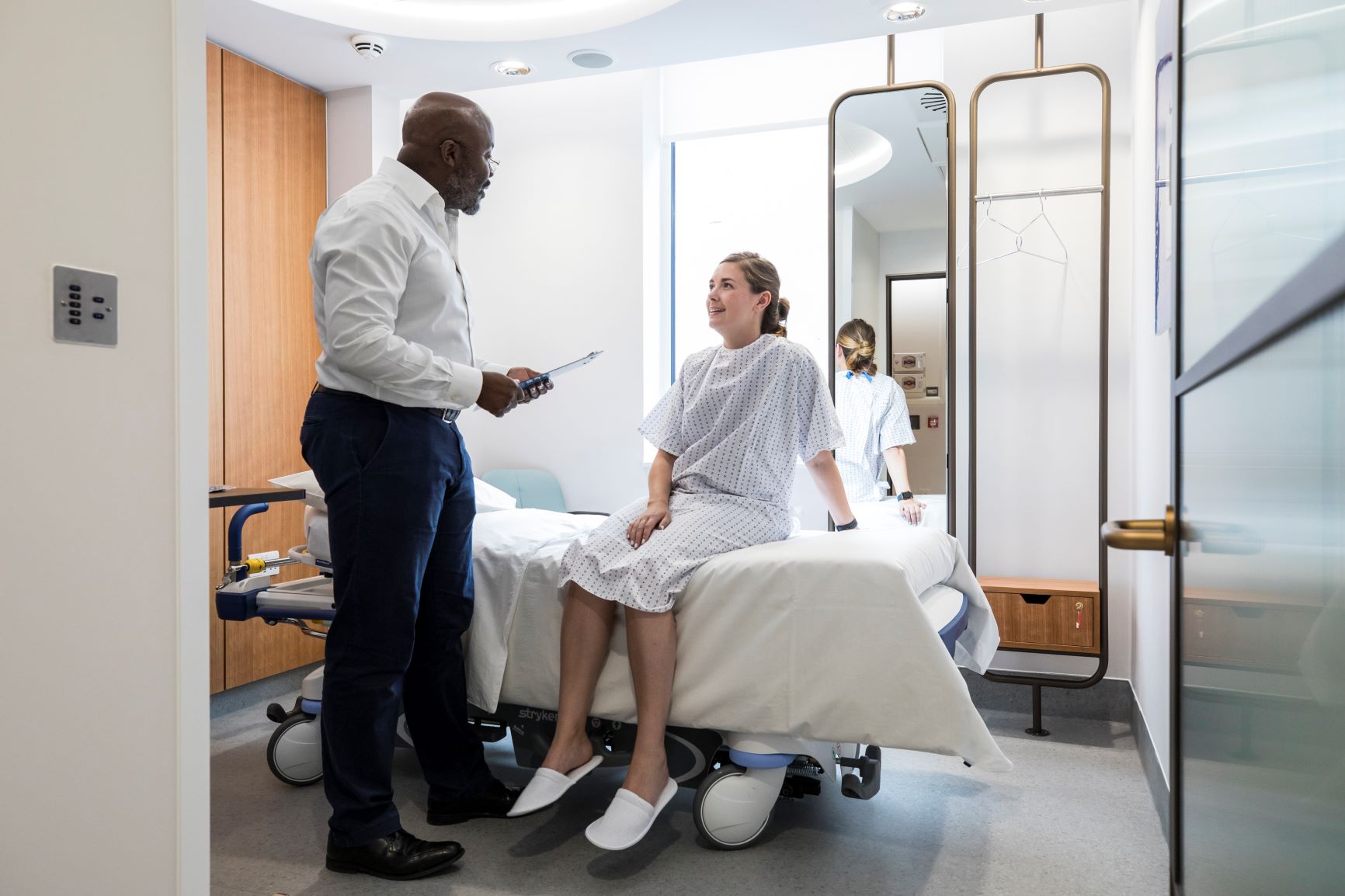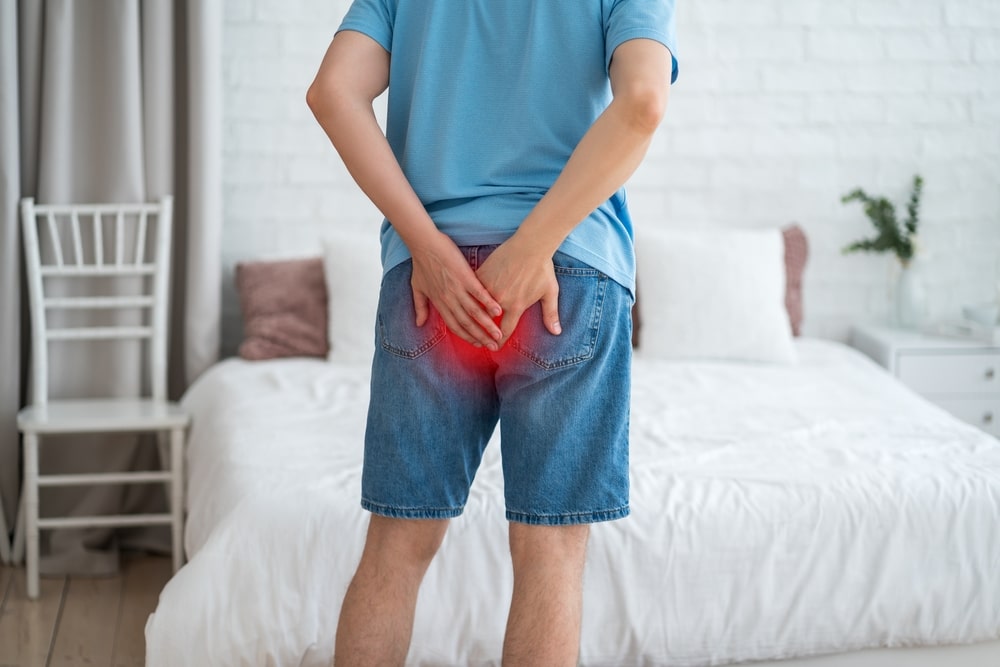Dr Faidon Laskaratos
Consultant Gastroenterologist
Specialist expertise: Gastroenterology, Irritable Bowel Syndrome, Abdominal Pain, Diarrhoea, Constipation, Gastrointestinal Bleeding, Bowel Cancer Screening, Gastrointestinal Neuroendocrine Tumours.
What are piles, and how can they be treated? In this short post we’re going to discuss how to deal with piles (haemorrhoids).

A pile is a small lump. They will appear and grow inside or around the edge of the bottom. They are made from enlarged blood vessels.
Piles will usually be quite small, round in shape and have some red discolouration which makes them identifiable.

Yes. Piles is the common name given to haemorrhoids.
There are many reasons why someone might get piles. Age is one of the most common – the likelihood of you getting them increases with age.
You may also get piles due to constipation or diarrhoea, straining while going to the toilet, or carrying out strenuous activity such as lifting heavy weights.

Common symptoms can include:
However, it is always important to ensure that the symptoms are in fact due to piles and not something else. Ensure you have been checked properly.

Get in touch with your GP. They will offer advice, or get you booked in for an examination of the area for a full diagnosis.
While the growth is similar, piles are often diagnosed on a grading scale; from first to fourth degree. Most people will have Grade 1 or 2 piles which can be treated quite easily without any help. Grade 3 piles are those which have prolapsed outside the anus, while Grade 4 is an indicator that the piles are large and need treatment.
There are some instances where piles will clear up after a few days. In fact, in the majority of cases this is what happens.
Anyone with low grade piles can treat the condition by taking simple actions like drinking more water, increasing fibre intake, and making sure the area is always clean.
It is also common for a doctor to prescribe creams to help with irritation, as well as corticosteroids or laxatives.
When an individual has higher grade piles, they may have to undertake a treatment plan. This can range from non-surgical treatments to surgery.

The most well-known treatments include ligation (bands put on the piles so they shrink and fall off), injection or sclerotherapy and electrotherapy
In the rare cases where surgery needs to be performed, a haemorrhoidectomy is carried out. This is where piles are cut out. For a patient’s lump that has prolapsed, a stapled haemorrhoidopexy may be carried out to get piles back inside the anus.
If the piles don’t go away after taking medicine and problems persist, it is worth asking your GP to put you in touch with a specialist.
Are you looking for specialist help to deal with piles?
At OneWelbeck Digestive Health, visitors can expect exceptional care in a discrete environment.
If you have any questions about these piles, our team of world-class specialists will be happy to discuss options with you.
You can get in touch with us.
What are piles?
Are piles and haemorrhoids the same?
How do people get piles?
What symptoms would someone with piles expect?
How can I get checked for piles?
Are piles the same for everyone?
Do piles go away by themselves?
How are piles treated?
What non-surgical treatments are there for haemorrhoids?
What surgical treatments are there for haemorrhoids?
Can I have a specialist look at haemorrhoids?
Get in touch
Here at OneWelbeck, we have a team of specialists, state of the art facilities and diagnostics, and highly competitive financial packages for self-funding patients as well as those with private health care.
Digestive Health